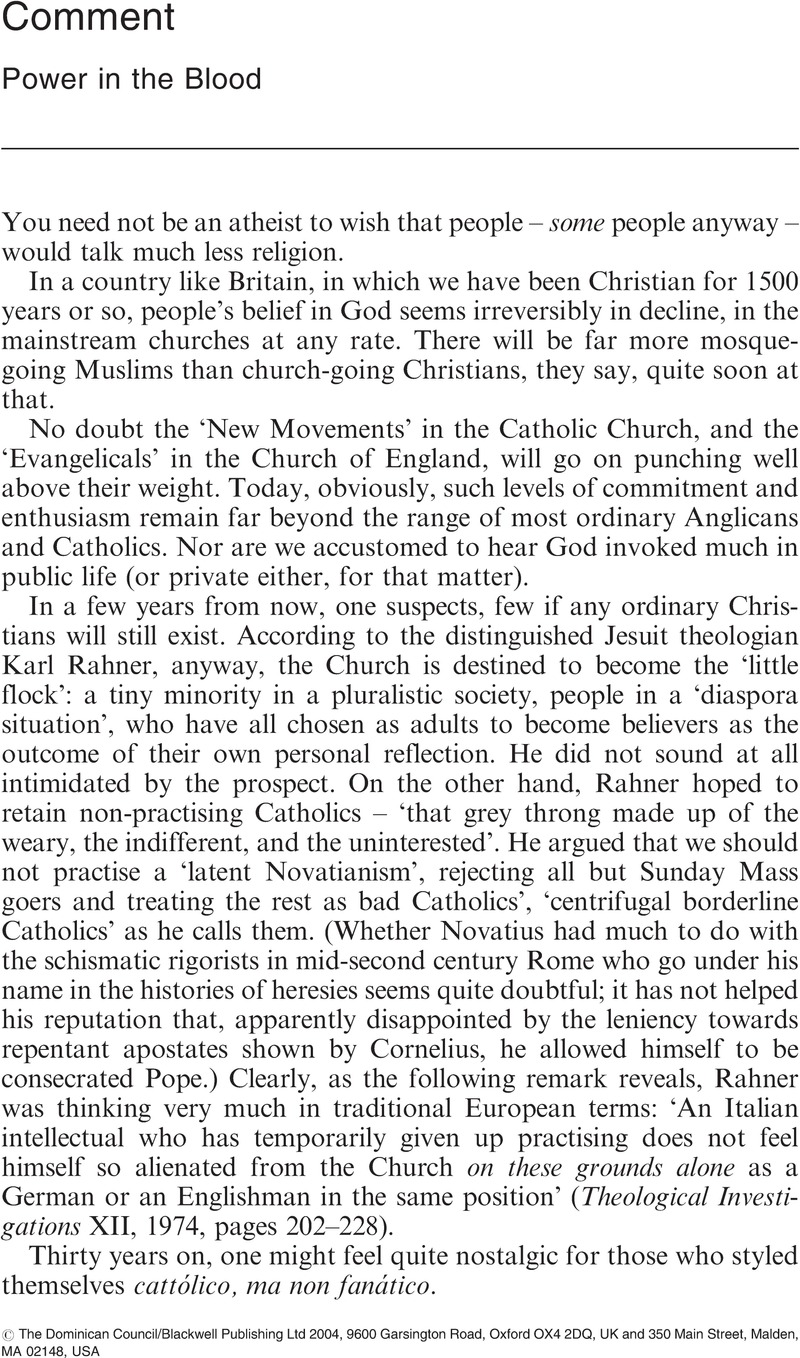No CrossRef data available.
Article contents
Comment: Power in the Blood
Published online by Cambridge University Press: 01 January 2024
Abstract
An abstract is not available for this content so a preview has been provided. Please use the Get access link above for information on how to access this content.

- Type
- Comment
- Information
- Copyright
- Copyright © The Dominican Council/Blackwell Publishing Ltd 2004


